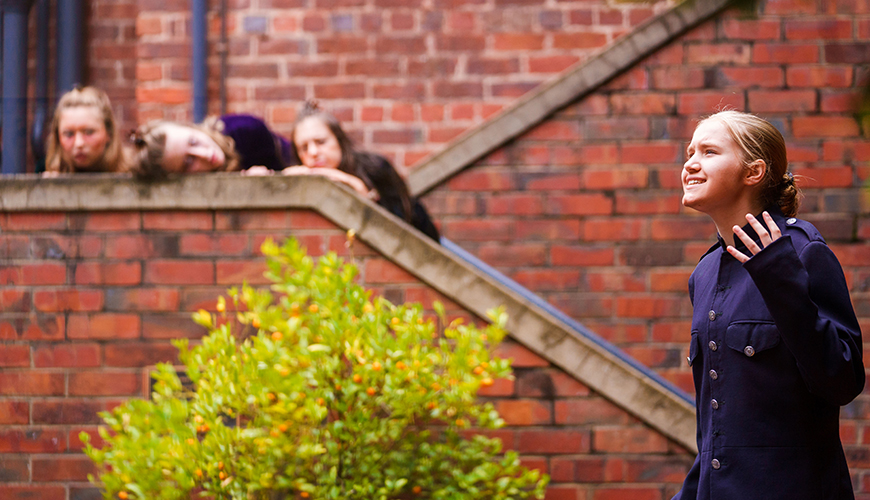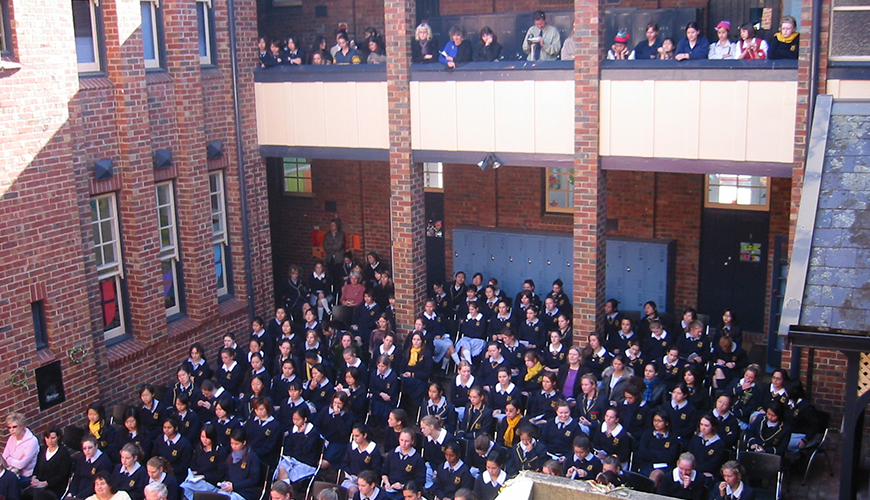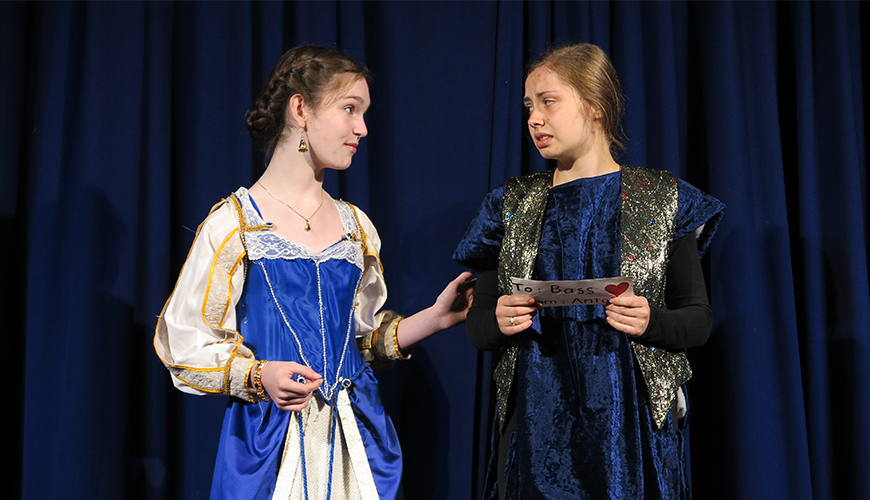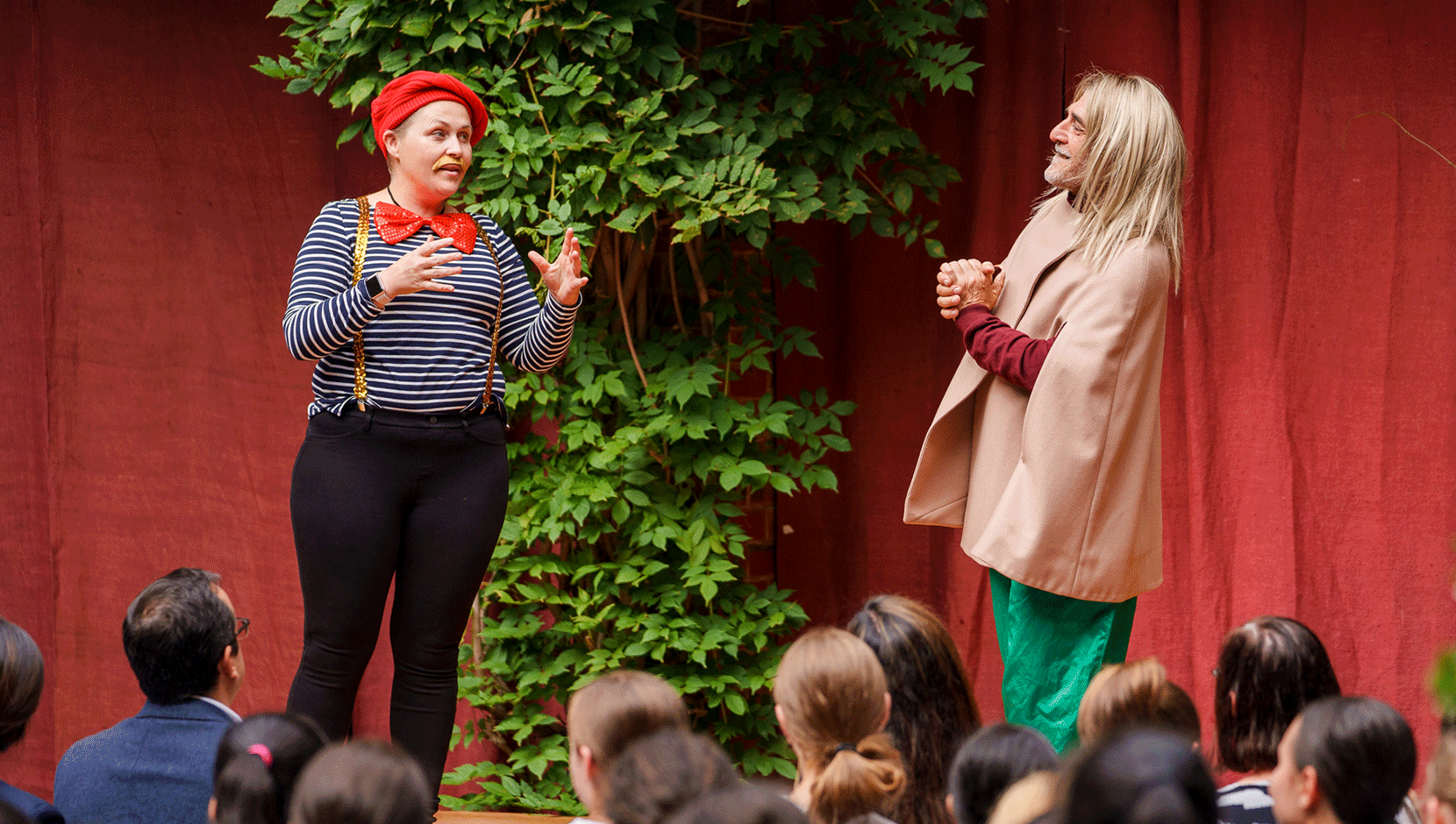
Behind the Scenes of Shakespeare Day
One day each year, students, staff, and invited guests on the Senior Campus (Years 5 to 12) gather in the Tourmont Courtyard to watch groups of students from Years 9 to 12 perform scenes from Shakespeare’s works. There is a buzz surrounding Shakespeare Day as the wider Fintona community experiences seeing the texts as they were intended - living, breathing performances for entertainment.

While only a few groups from each year level perform on Shakespeare Day, behind the scenes, and in the weeks leading up to the event, Senior students explore, analyse and perform their own interpretations of Shakespeare’s works in English and Literature classes. In this article, English and Literature teacher Hugh Gundlach writes about his experience teaching Shakespeare at Fintona.
Studying Shakespeare’s plays at Fintona is special. It has been such fun in class over the last few weeks doing a combination of close reading of the texts, watching excerpts from film and stage versions, and most of all, supporting the girls in rehearsing and performing their own interpretation of a scene. Fintona’s Shakespeare Day is a unique celebration of the contribution William Shakespeare made to theatre, culture, and the English language.
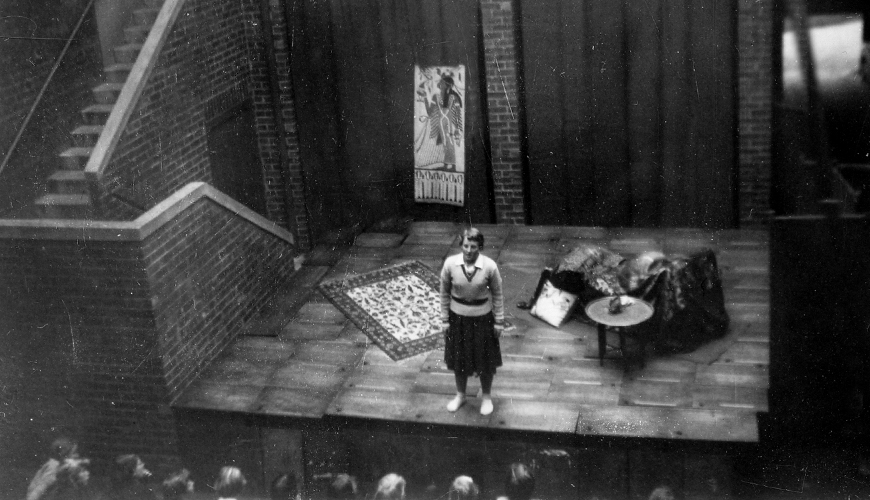
Shakespeare Day 1951
Shakespeare was an actor’s writer, and he wrote his works with certain friends in mind to play characters, with the knowledge that he would be there to influence his creation. The first major assessment the girls do for Shakespeare texts is not an essay or passage analysis, but their own performance of a scene with their friends. This encourages them to see the text as a script, not a novel, and one that is designed to be interpreted and performed.
It has been a challenge for the students to memorise their lines, in much the same way that six to eight actors in Shakespeare’s day regularly performed six different plays in six days with only their own lines and a cue line for reference. Similar to the minimalism of the Globe Theatre in London, our students creatively improvise costumes, props and sets, instead focusing on voice, gesture and movement for characterisation.
I have been so impressed with the standard of acting and creativity this task encourages in the girls. It has been a joy to hear the confident voices that fill the various spaces around the school for the in-class performances.
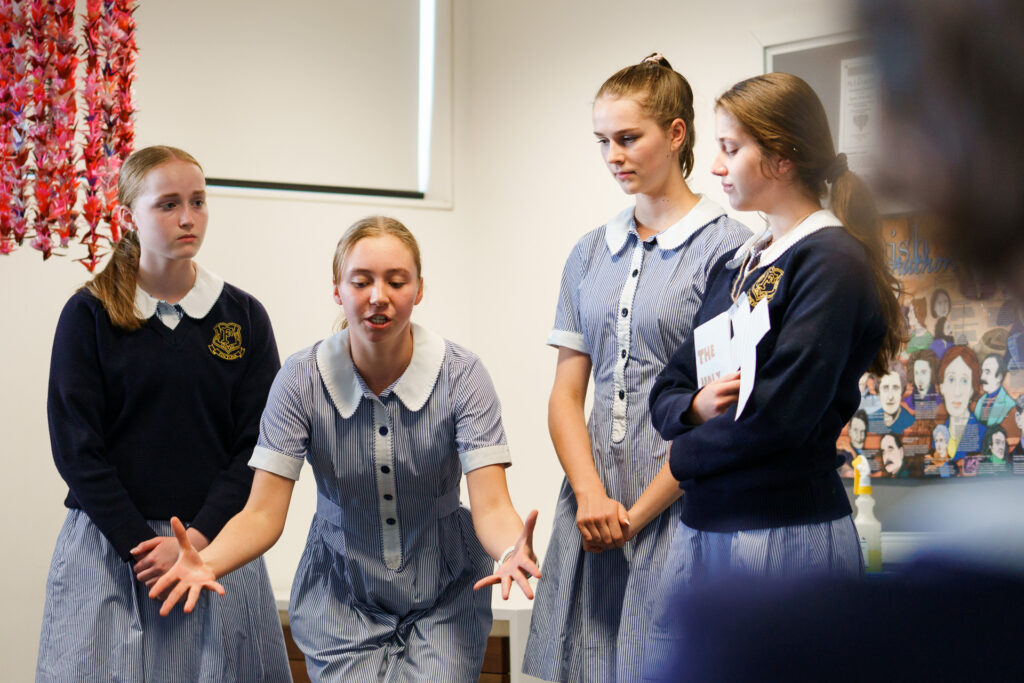
In-class Shakespeare Performance
Teaching Othello to Year 12 Literature students exactly 20 years after I studied it in my own final VCE year, I have found my perspective has changed for several issues in the play. We change between readings and viewings, but we are also changed by these texts. I wonder what the Year 9 girls, about the same age as Juliet, will think of the issues in Romeo and Juliet when they meet their first ‘crush’, or after a break-up? Will they, years from now, potentially returning to Tourmont Courtyard for Shakespeare Day as a parent, sympathise more with the Nurse or Lady Capulet’s character than Juliet’s? For me, Hamlet is a new text to study with Year 11 this year and I relish sharing the academic discomfort with the students of not yet knowing exactly what to think or feel about the characters and events of the English language’s most quoted play. These texts have endured for centuries because their questions cannot be conclusively solved or answered.
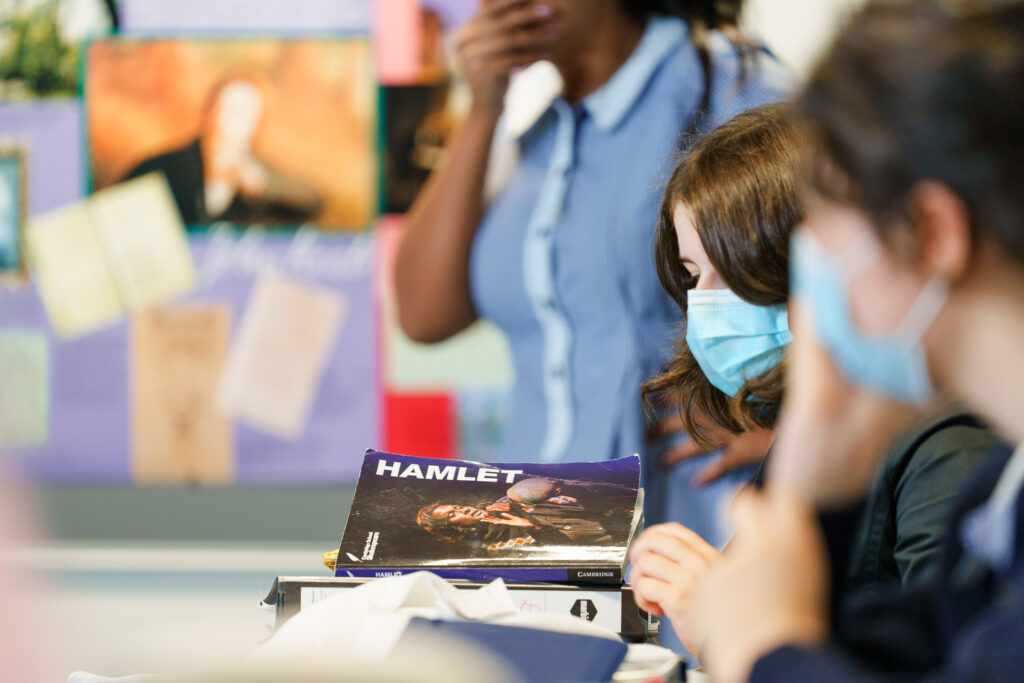
In the weeks leading up to Shakespeare Day, Senior students explore, analyse and perform their own interpretations of Shakespeare’s works in English and Literature classes.
Shakespeare’s works were not sacred in his own time, nor were they considered particularly ‘high culture’. It is exciting to see what students do with some of the classic scenes when they interpret the works. The Shakespeare unit and Shakespeare Day (23 March 2022) are uniquely Fintonian approaches to appreciating a major literary figure and building a variety of skills.
Hugh has taught at Fintona since 2020. He also lectures in education at the Melbourne Graduate School of Education and recently submitted his PhD in education on teacher wellbeing and retention.
